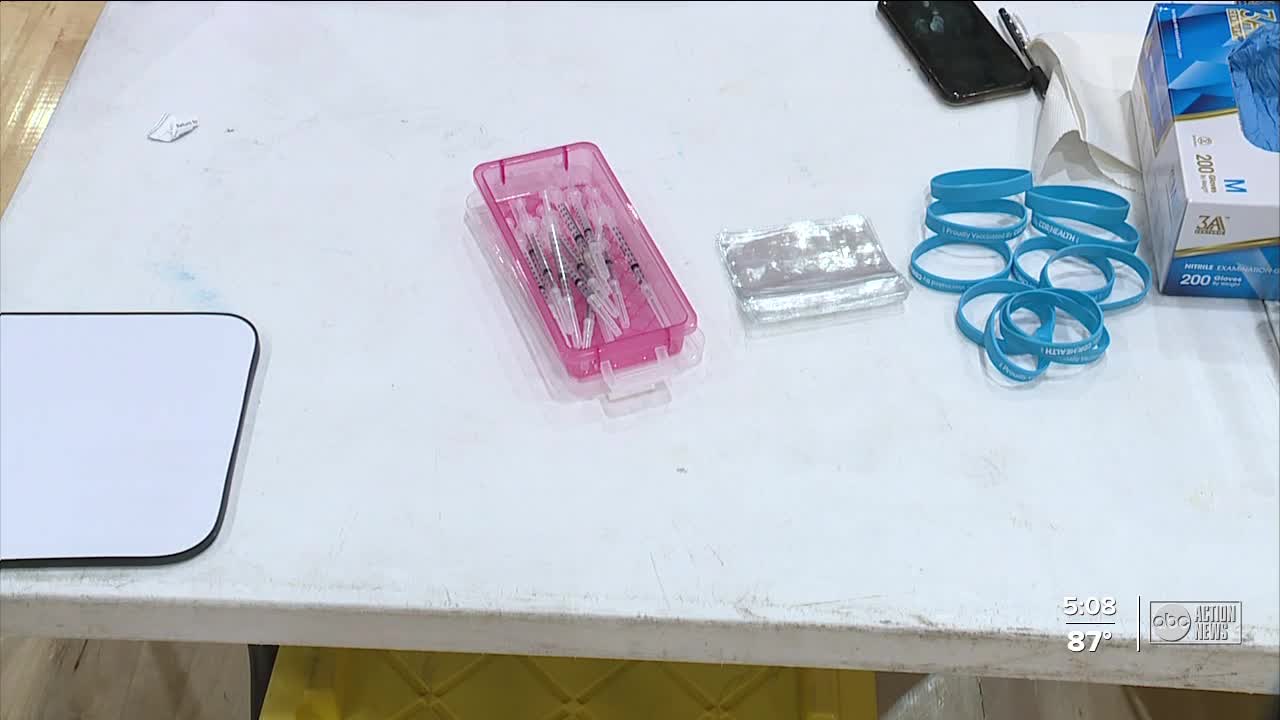NEW YORK, N.Y. — Pfizer announced Wednesday that data shows a third dose of its COVID-19 vaccine can “strongly” boost protection against the highly transmissible delta variant.
The pharmaceutical and biotechnology company made the announcement in a copy of its second-quarter results, which were expected to be discussed in a company earnings call.
Pfizer says its data suggests that after a third dose of its vaccine, the level of antibodies effective against the delta variant could be more than five times higher than after a second dose of the vaccine in people ages 18 to 55, and more than 11 times higher in people ages 65 to 85.
Pfizer also wrote that there’s an “estimated potential for up to a 100-fold increase in delta neutralization post-dose three compared to pre-dose three.”
The information cited in the quarterly results has not yet been peer-reviewed or published.
"I would just take with a grain of salt," Dr. Michael Teng with USF Health said.
Dr. Teng has been encouraging everyone to get vaccinated, but in this case he says the phrase "the more the merrier," is inaccurate.
"While it's really theoretically important to know whether we can make a booster vaccine that targets a specific variant, it's really not necessary at this time," he said.
Dr. Teng says although we're seeing COVID-19 mutate into several variants, the overall virus isn't changing much. That's unlike the flu where pharmaceutical companies annually switch up the shot to account for certain strains, and it's stressed you take it every year.
But with current data, although immunity does decrease it's not showing enough of an issue where your immunity would be severely compromised, similar to getting the measles vaccine where two doses is enough.
"The virus doesn't change enough that the immunity that you've gotten will not recognize it anymore. And so this is one of those things," Dr. Teng said.
Pfizer is using data from trials in Israel, but Dr. Teng says that focus group was really small, only accounting for 35 people. He also says the math was done incorrectly.
"The Ministry of Health in Israel seemed to show That the Pfizer vaccine was only about 39% effective against the Delta variant," Dr. Teng said. "They were in a higher vaccinated group, they used the wrong number to divide by, so the vaccine coverage was different. in the group that initially got infected and the lower vaccinated people, the lower percentage vaccinated groups then got infected later."
Dr. Teng says other studies in France and the U.K> are showing 85% or more vaccine efficacy against the Delta variant. But he says if anyone could benefit from a 3rd dose, it would be immunocompromised people.
"Sometimes the third dose works really well and sometimes it doesn't. So it's not a cure-all for those people who have compromised immune systems to get a third dose," he said.
Dr. Teng says between 40% and 50% of immunocompromised people respond favorably to the vaccine. In the meantime, Dr. Teng says he's waiting for the FDA to weigh in.
"Safety is the most important thing. It's not how much neutralizing antibodies you can get. It's how safe is the vaccine," he said.
Earlier this month, Pfizer said it would seek U.S. authorization for a third dose of its COVID-19 vaccine and that another shot could dramatically boost immunity and ward off the delta variant.
The delta variant is now the dominant strain in the U.S. and a recent rise in coronavirus cases is being attributed to its dominance in the country.
Despite the promising data released by Pfizer, it remains unclear if a third dose will be necessary because the current vaccines have shown to be effective at preventing serious illness.
A study published last week showed two doses of Pfizer or AstraZeneca’s vaccines are nearly as effective against the delta variant as they are against the previously dominant alpha variant, Reuters reports. The study found two doses of Pfizer’s shot were 88% effective at preventing symptomatic disease from the delta variant, compared to 93.7% against the alpha strain.



